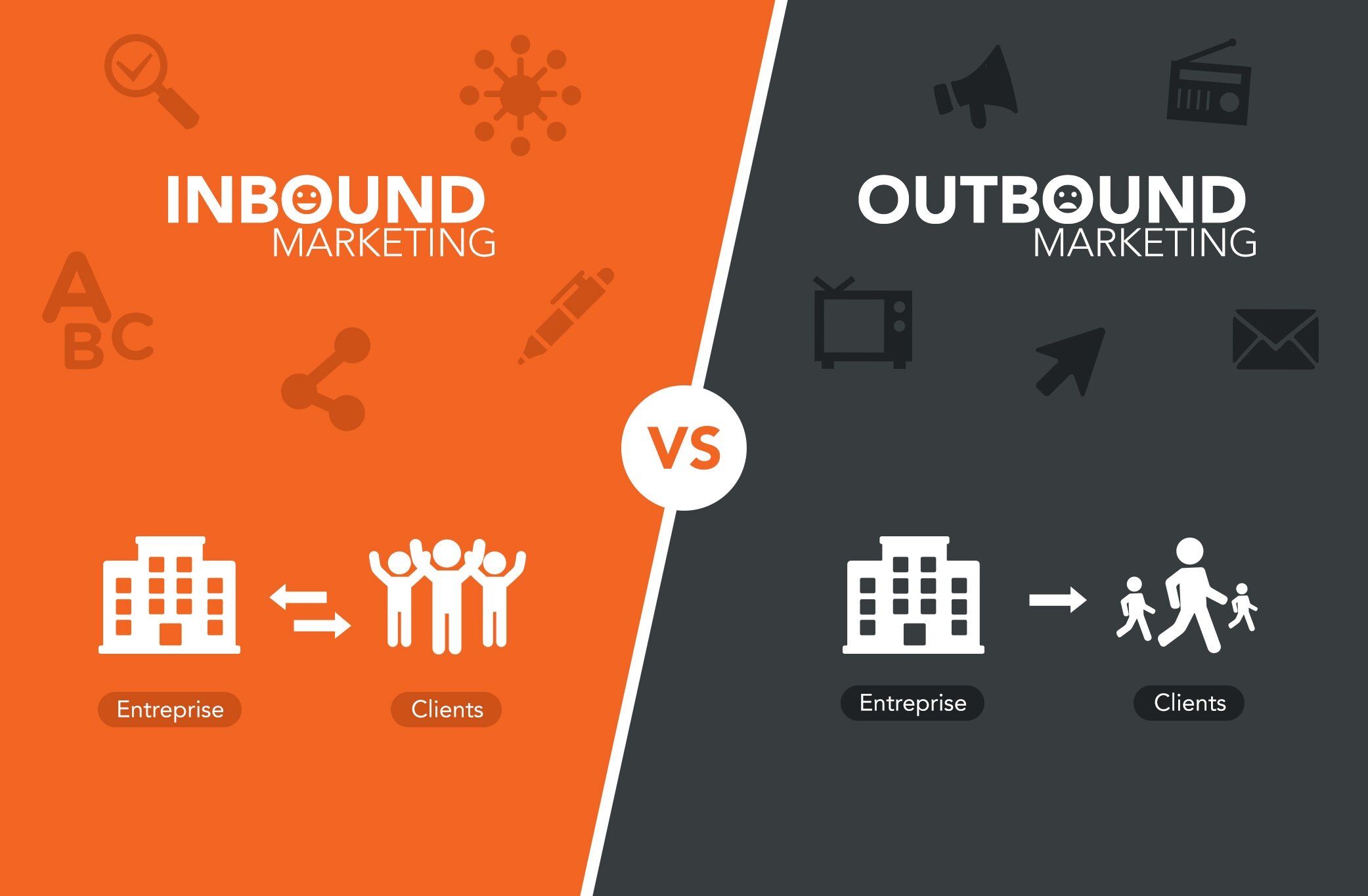
In the ever-evolving landscape of digital marketing, businesses are constantly seeking innovative approaches to connect with their audience and drive meaningful engagement. One such transformative methodology that has gained immense popularity is inbound marketing. Unlike traditional outbound methods that interrupt potential customers, inbound marketing focuses on attracting and delighting audiences organically.
Key Inbound Marketing Strategies
Content Marketing - Building The Foundation
At the heart of inbound marketing lies content creation. Valuable, relevant, and consistent content not only attracts prospects but also establishes a brand as an authoritative figure in its industry.
Search Engine Optimization (SEO) - Driving Organic Traffic
SEOis the engine that propels inbound marketing. By optimizing content for search engines, businesses can increase their visibility, ensuring that their target audience finds them when searching for relevant information.
Social Media Engagement - Amplifying Reach
Social media platforms serve as powerful tools for inbound marketers. Leveraging the vast user bases of platforms like Facebook, Twitter, and Instagram can significantly amplify a brand's reach and foster a sense of community.
Email Marketing - Nurturing Leads
Email marketing remains a cornerstone of successful inbound strategies. By delivering personalized and targeted content directly to the inbox, businesses can nurture leads and maintain ongoing relationships with customers.
Advantages Of Inbound Marketing
Enhanced Brand Visibility
Inbound marketing enables businesses to organically build a strong online presence, ensuring that they are visible to their target audience whenever and wherever they are searching for relevant information.
Lead Generation Efficiency
By providing valuable content tailored to their audience's needs, businesses attract leads genuinely interested in their products or services, leading to higher conversion rates and improved return on investment.
Customer Engagement And Loyalty
Inbound marketing fosters ongoing engagement through meaningful content and interactions. This engagement, in turn, nurtures customer loyalty, creating a community around the brand.
Comparison With Outbound Marketing
Customer-Centric Approach
Unlike outbound marketing, which relies on interruptive tactics like cold calling and mass advertising, inbound marketing is customer-centric. It revolves around creating content that aligns with the audience's interests and needs, pulling them in rather than pushing a message onto them.
Cost-Effectiveness
Inbound marketing often proves to be more cost-effective than outbound methods. By creating valuable content that continues to attract leads over time, businesses can enjoy sustained benefits without incurring the ongoing costs associated with outbound strategies.
Creating Compelling Content
Quality Over Quantity
Effective content is not just about producing vast amounts; it's about delivering quality. Creating content that solves problems, answers questions, and adds value establishes a brand as a trustworthy resource.
Understanding Your Audience
Tailoring content to the specific needs and interests of your target audience is crucial. By understanding their pain points and preferences, businesses can create content that resonates and builds lasting connections.
Search Engine Optimization (SEO) For Inbound Marketing
Keyword Research And Integration
Keyword research is the backbone of SEO. Identifying and strategically integrating relevant keywords into your content ensures that search engines recognize its value, leading to improved rankings and visibility.
Optimizing User Experience
SEO is not just about keywords; it's also about creating a seamless user experience. Mobile optimization, fast-loading pages, and user-friendly navigation contribute to a website's overall search engine performance.
Social Media Strategies For Inbound Marketing
Choosing The Right Platforms
Understanding your audience is crucial in selecting the right social media platforms for your business. Each platform caters to a different demographic, and a well-crafted social media strategy considers where your audience is most active.
Engaging Content Formats
Visual content, such as images and videos, often performs exceptionally well on social media. Utilizing these formats, along with interactive content like polls and quizzes, can significantly boost engagement.
Email Marketing In Inbound Strategies
Segmentation And Personalization
Segmenting your email list based on user behavior and preferences allows for highly targeted and personalized campaigns. This tailored approach increases the relevance of your emails, leading to higher open and click-through rates.
Automation For Efficiency
Email marketing automationstreamlines the nurturing process. Automated workflows can deliver timely, personalized content to leads at various stages of the customer journey, saving time and increasing efficiency.
Measuring Inbound Marketing Success
Key Metrics For Evaluation
Measuring the success of inbound marketing involves tracking key metrics such as website traffic, conversion rates, and engagement levels. Tools like Google Analytics and marketing automation platforms provide valuable insights into campaign performance.
Iterative Improvement With Data-Driven Decision-Making
Data-driven decision-making is fundamental to inbound marketing success. Analyzing campaign data allows businesses to identify what works, what doesn't, and continually refine their strategies for optimal results.
Case Studies And Success Stories
HubSpot - The Inbound Marketing Pioneer
HubSpot is a prime example of a company that revolutionized its industry through inbound marketing. By offering valuable resources, educational content, and marketing automation tools, HubSpot has become synonymous with inbound success.
Airbnb - Community Building Through Content
Airbnb's success is not just about providing accommodation; it's about building a global community. Through content that highlights unique travel experiences and user-generated content, Airbnb has created a brand that resonates with its audience.
FAQs
What Is The Central Role Of Content In Inbound Marketing?
Content serves as the foundation of inbound marketing, attracting and engaging audiences by providing valuable and relevant information.
How Does SEO Contribute To The Success Of Inbound Marketing?
SEO plays a pivotal role by optimizing content for search engines, driving organic traffic and enhancing overall visibility.
What Distinguishes Inbound Marketing From Outbound Marketing?
Inbound marketing is customer-centric, focusing on attracting audiences through valuable content, in contrast to outbound methods that rely on interruption and mass advertising.
What Advantages Does Inbound Marketing Offer In Terms Of Lead Generation?
Inbound marketing efficiently generates leads by attracting prospects genuinely interested in a brand's products or services through valuable content.
How Can Businesses Measure The Success Of Their Inbound Marketing Efforts?
Businesses can measure success through key metrics like website traffic, conversion rates, and engagement levels, using tools such as Google Analytics for data-driven decision-making.
Conclusion
Inbound marketing has proven to be a game-changer in the digital realm, offering a customer-centric and cost-effective approach to building brand visibility, generating leads, and fostering customer loyalty. By embracing the key strategies discussed and learning from successful case studies, businesses can position themselves for sustained success in the ever-evolving landscape of digital marketing. As technology continues to advance, the principles of inbound marketing remain a guiding light for those seeking meaningful and lasting connections with their audience.
